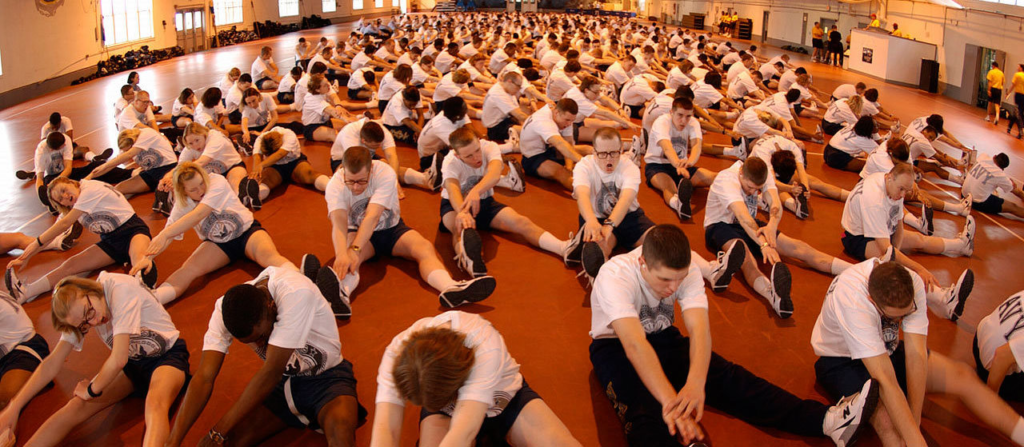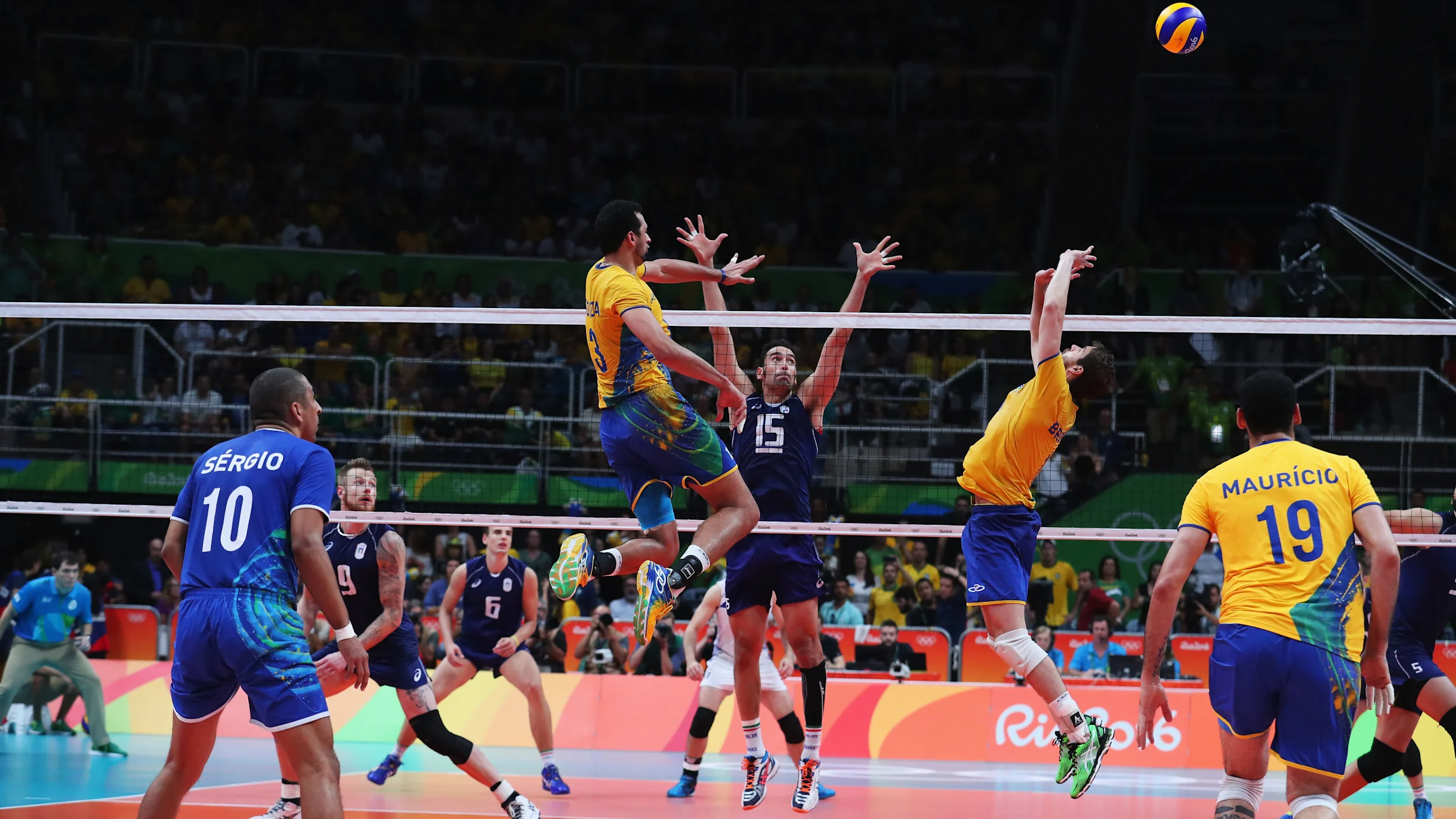Playing on a volleyball court can be an exhilarating experience, offering the perfect blend of athleticism, teamwork, and competitive spirit. Whether you’re a beginner or a seasoned player, it’s essential to be aware of the do’s and don’ts to ensure an enjoyable and safe game. This article will guide you through the key aspects of playing on a volleyball court, highlighting the dos and don’ts that every player should keep in mind. By following these guidelines, you can enhance your skills, contribute to fair play, and minimize the risk of injuries.
Table of Contents
Do: Warm up and Stretch Beforehand

Before stepping onto the volleyball court, it’s crucial to warm up your body and stretch properly. A thorough warm-up routine helps prepare your muscles, joints, and cardiovascular system for the physical demands of the game. Begin with a light jog or brisk walk to increase your heart rate and loosen up your muscles. Follow this with dynamic stretching exercises that mimic the movements you’ll perform during the game, such as arm circles, leg swings, and lunges.
Warming up and stretching before playing volleyball enhances your flexibility, reduces the risk of muscle strains or sprains, and allows you to perform at your best. It also helps increase blood flow, which improves oxygen delivery to your muscles and enhances your overall performance. Remember to focus on all major muscle groups, including your arms, shoulders, legs, and core, to ensure a comprehensive warm-up routine.
Don’t: Wear Inappropriate Footwear

Choosing the right footwear is paramount when playing on a volleyball court. Avoid wearing shoes that lack proper support or have excessive grip, as they can hamper your performance and increase the risk of injury. Opt for volleyball-specific shoes that offer stability, cushioning, and traction. These shoes are designed to provide lateral support, allowing you to move quickly and make agile movements without straining your feet or ankles. Wearing inappropriate footwear, such as running shoes or casual sneakers, can lead to instability, inadequate shock absorption, and reduced traction on the court. This may result in slips, falls, or ankle twists, jeopardizing your safety and performance.volleyball court.
Invest in a good pair of volleyball shoes that fit well and provide the necessary support for your feet and ankles. Remember to replace them when they show signs of wear to maintain optimal performance and prevent injuries.
Do: Communicate and Collaborate with Your Teammates
Volleyball is a team sport that thrives on effective communication and collaboration. To excel on the court, it’s essential to establish clear communication with your teammates. Verbalize your intentions, call for the ball, and provide encouragement and support. Effective communication helps in coordinating movements, executing strategies, and maximizing your team’s performance.
Collaboration is equally vital in volleyball. Work together with your teammates to set up plays, create opportunities, and cover the court effectively. Establish a synchronized rhythm and anticipate each other’s actions to maintain a seamless flow during the game. Remember, a well-coordinated team with strong communication can outperform individual talent alone.volleyball court.
Don’t: Step Over the Center Line

One crucial rule to abide by on a volleyball court is to never step over the center line. The center line divides the court into two equal halves, and crossing it while the game is in progress can result in penalties and potentially dangerous collisions. Stepping over the center line can disrupt the opposing team’s play, leading to unfair advantages or even causing injuries. Respecting the center line promotes fair play and ensures a safe playing environment for everyone involved.volleyball court.
It helps maintain a clear boundary between teams and prevents interference with the opposing team’s side of the court. Always be mindful of your positioning and avoid crossing the center line, even inadvertently, during the game.
Do: Master the Fundamentals
To excel on a volleyball court, it’s crucial to have a strong foundation in the fundamental skills of the game. Focus on mastering techniques such as serving, passing, setting, attacking, and blocking. These skills form the building blocks of successful gameplay and contribute to a well-rounded player. Regular practice and repetition are key to honing your skills.volleyball court
Work on your service to ensure accuracy and power. Develop your passing abilities to deliver accurate balls to your teammates. Practice your setting technique to provide precise setups for attackers. Improve your attacking skills to effectively score points. And work on your blocking to disrupt the opponent’s attacks. By mastering the fundamentals, you’ll enhance your overall performance and contribute significantly to your team’s success.volleyball court.
Don’t: Ignore Safety Measures
Safety should always be a top priority when playing on a volleyball court. Ignoring safety measures can lead to severe injuries and put yourself and others at risk. Here are a few crucial safety guidelines to keep in mind:
- Always warm up and stretch before playing to prevent muscle strains or sprains.
- Use appropriate protective gear, such as knee pads, to safeguard your joints.
- Stay hydrated throughout the game to avoid dehydration and cramping.
- Be aware of your surroundings and watch out for other players to prevent collisions.
- Follow proper techniques and form to minimize the risk of injuries.
- Report any hazardous conditions on the court, such as slippery surfaces or broken equipment, to the appropriate authorities.
- Listen to your body and rest when necessary to avoid overexertion or fatigue.
By adhering to these safety measures, you can enjoy the game while minimizing the chances of injuries and creating a safe environment for everyone involved.
Do: Maintain Good Sportsmanship
Sportsmanship plays a crucial role in volleyball, fostering respect, fair play, and positive interactions among players. Uphold the principles of good sportsmanship by following these guidelines:
- Treat opponents with respect, regardless of the outcome of the game.
- Avoid unsportsmanlike conduct, such as trash-talking or taunting.
- Accept both victories and defeats gracefully.
- Shake hands with your opponents after the game, acknowledging their efforts.
- Support and encourage your teammates, fostering a positive team atmosphere.
- Follow the rules and regulations of the game, respecting the decisions made by referees and officials.
- Display humility in victory and offer words of encouragement to opponents who may be struggling.
Maintaining good sportsmanship not only contributes to a positive playing experience but also helps build strong relationships with fellow players and fosters a sense of camaraderie within the volleyball community.
Don’t: Neglect Proper Body Mechanics
Using proper body mechanics is essential in volleyball to optimize performance and minimize the risk of injuries. Neglecting proper techniques and body mechanics can lead to strain on your joints, muscles, and ligaments. Here are a few key points to remember:
- Bend your knees and maintain a low center of gravity to improve stability and agility.
- Engage your core muscles to maintain balance and generate power in your movements.
- Avoid excessive twisting or leaning while hitting or blocking, as it can strain your back and cause injury.
- Land with bent knees after jumping to absorb impact and prevent excessive stress on your joints.
- Focus on proper arm swing technique to maximize power and accuracy when attacking.
- Use your legs and hips to generate power when serving or spiking, rather than relying solely onyour arm strength.volleyball court.
By prioritizing proper body mechanics, you’ll enhance your performance on the volleyball court while reducing the risk of overuse injuries and long-term damage.
Do: Practice Consistently
Consistent practice is key to improving your skills and becoming a proficient volleyball player. Dedicate regular time to practice various aspects of the game, including serving, passing, setting, attacking, and defensive maneuvers. Here’s why consistent practice matters:
- Skill development: Regular practice allows you to refine your techniques, improve your timing, and enhance your overall proficiency in the game.
- Muscle memory: By repeating specific movements and actions consistently, your muscles develop memory and become more efficient in executing the desired skills.
- Decision-making: Practice helps sharpen your decision-making abilities, enabling you to make quick and accurate choices during gameplay.
- Team cohesion: Consistent practice with your team fosters better coordination, communication, and understanding among teammates, leading to improved teamwork on the court.
Make a schedule and commit to regular practice sessions, focusing on both individual skills and team drills. Consistency in practice will undoubtedly elevate your performance and contribute to your team’s success.
Don’t: Neglect Recovery and Rest
While practice and training are essential, it’s equally important to prioritize recovery and rest. Neglecting proper rest can lead to fatigue, decreased performance, and increased susceptibility to injuries. Consider the following recovery practices:
- Rest days: Incorporate rest days into your training schedule to allow your body ample time to recover and repair.
- Sleep: Aim for sufficient sleep of around 7-9 hours each night to optimize physical and mental recovery.
- Nutrition: Fuel your body with a balanced diet that includes adequate proteins, carbohydrates, and healthy fats to support muscle recovery and replenish energy stores.
- Stretching and foam rolling: Incorporate regular stretching and foam rolling sessions to improve flexibility, relieve muscle tension, and promote blood circulation.
- Cross-training: Engage in activities other than volleyball to promote overall fitness, prevent overuse injuries, and give your body a break from repetitive movements.
By prioritizing recovery and rest, you’ll optimize your performance on the volleyball court, reduce the risk of injuries, and maintain a healthy balance between training and rest.
Conclusion
Playing on a volleyball court can be a thrilling experience, but it’s crucial to adhere to the do’s and don’ts to ensure a safe and enjoyable game. From warming up and choosing the right footwear to practicing good sportsmanship and maintaining proper body mechanics, these guidelines will help you enhance your skills, contribute to fair play, and minimize the risk of injuries. Remember, consistent practice, effective communication with teammates, and prioritizing rest and recovery are key factors in becoming a successful volleyball player. By following these principles, you’ll elevate your performance and make the most of your time on the volleyball court.
Learn about: Step into the Ring with Confidence: Unleash Your Potential with Nike Boxing Shoes, the Ultimate Footwear for Champions

